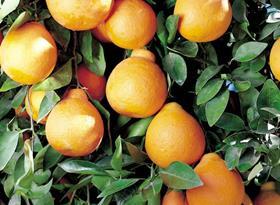
Egypt will export its first citrus of the 2014/15 season this week, according to Mohamed Abd El-Hady, chairman of the Citrus Committee at the Agriculture Export Council.
He said that Egypt’s exports would reach around 100 countries this season, with Saudi Arabia and Russia accounting for half, or 250,000 tonnes a year each, followed by other Gulf countries, the UK and the Netherlands.
The vast majority, upwards of 98 per cent, consists of Navels and summer season oranges, but with shipping costs rising, Egypt faces a challenge to compete for the EU market against nearer rivals such as Spain, Greece, Turkey, Morocco and Israel.
Internal transport costs have increased to EGP2,000 (€221) per tonne, according to Abd El-Hady, while customs clearance fees worth EGP4,000 (€442) have also to be paid.
He pointed out the importance of opening the Al-Salam Bridge, across the Suez Canal, to facilitate truck transport to East Port Said, responsible for 30-40 per cent of total citrus exports. Trucks currently depended on ferries to move them across the canal, he said, causing delays of up to four days.
Another challenge facing the citrus industry was the rise in supply in relation to demand, said Abd El-Hady. Annual production stands at 5.4m tonnes, but with the fruit ripening in April, summer marketing campaigns are difficult and waste is common.
Egypt's citrus procession plants were equally inefficient, said Abd El-Hady, with the country's 90 stations all running at around half their capacity.
Mohamed Sami El-Melegy, former Citrus Department chairman of the Horticulture Research Institute, recommended an increase in processing into juices and jams in order to cover the increase in production and boost the value of the product. He also suggested that commercial agents in Egyptian embassies abroad focus on opening up their markets for Egyptian products, including citrus.
Don't forget to read our main report on the Northern Hemisphere citrus forecasts from Freshfel and Shaffe, written before Egypt's figures became available.



